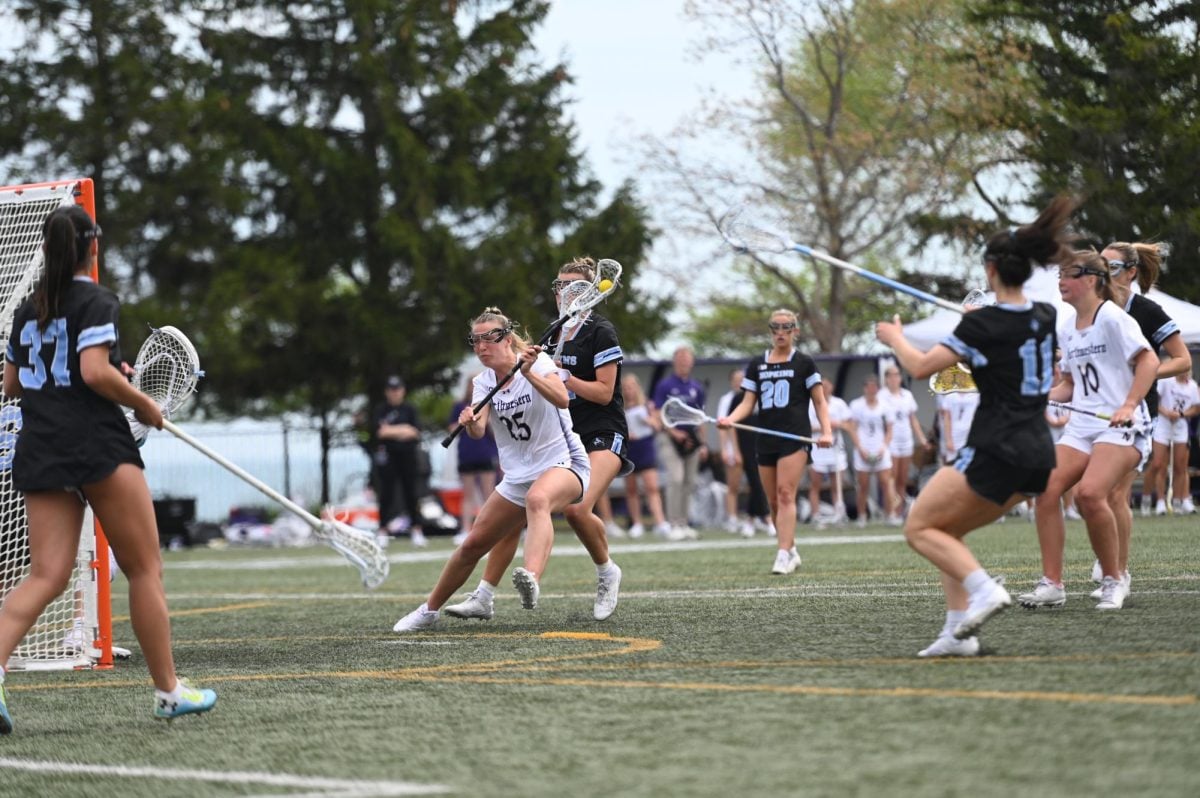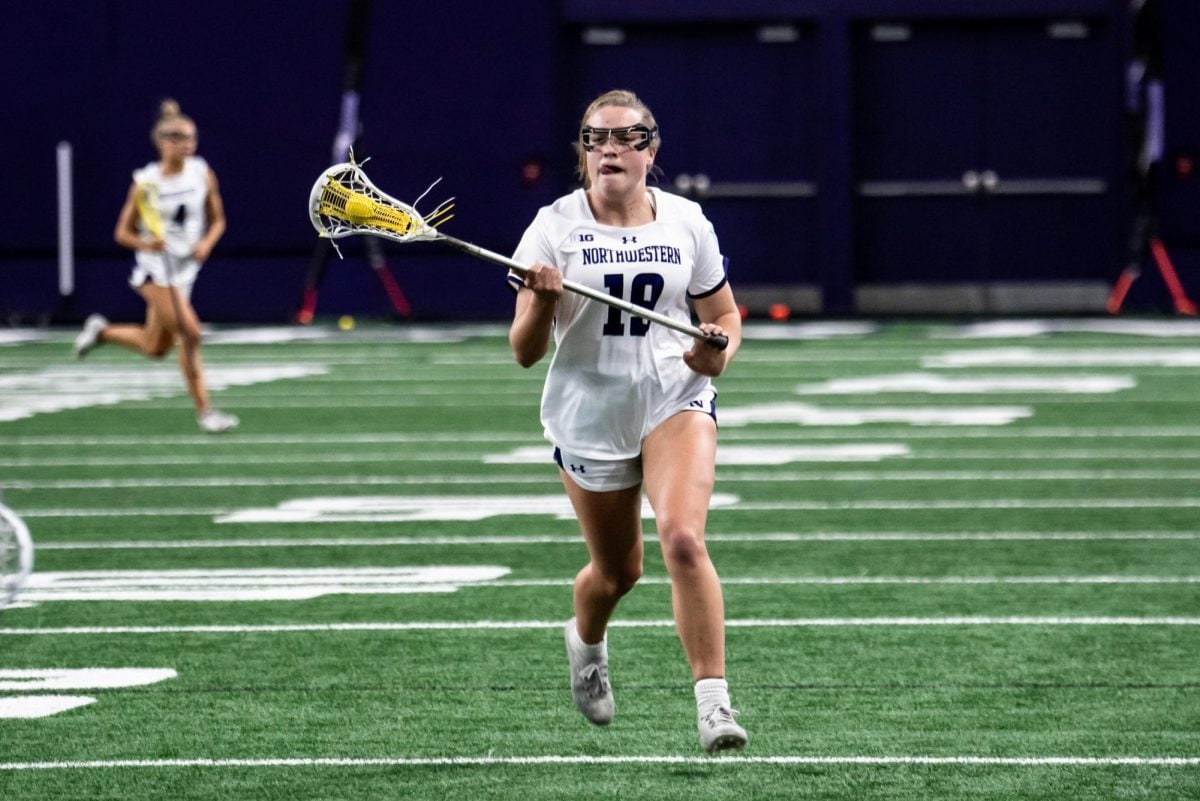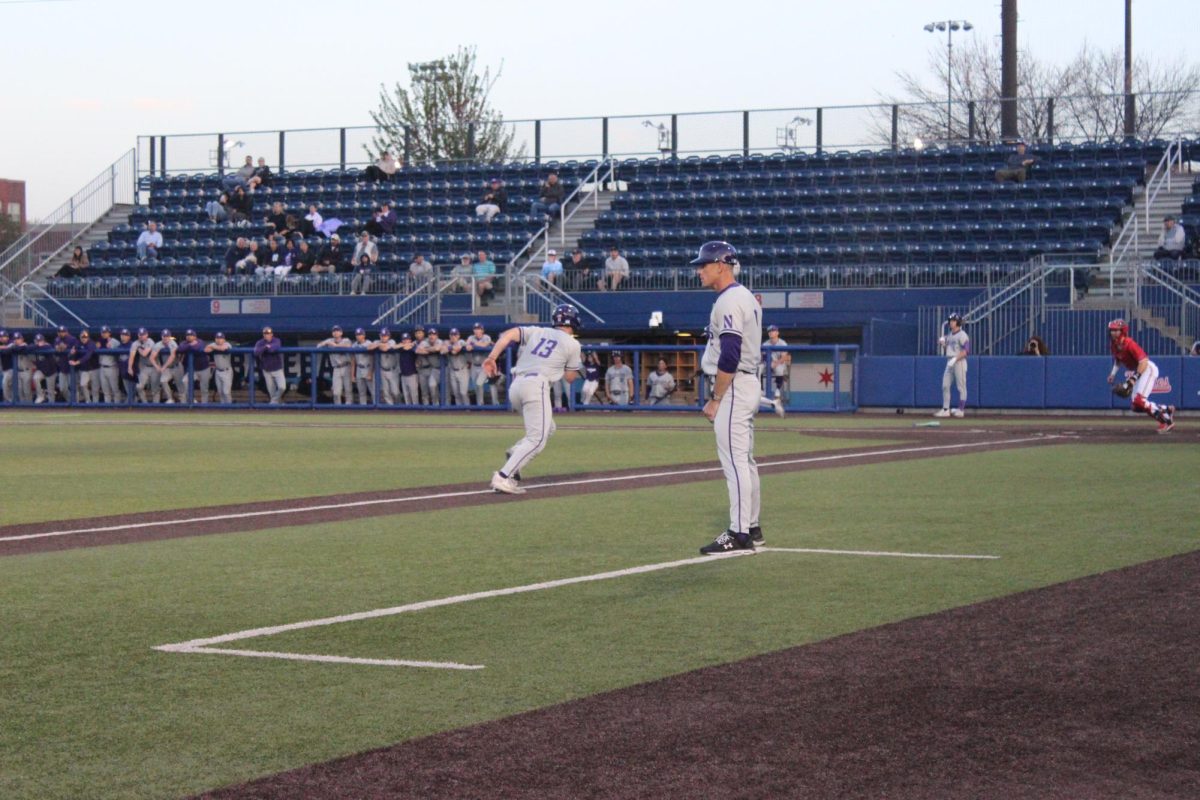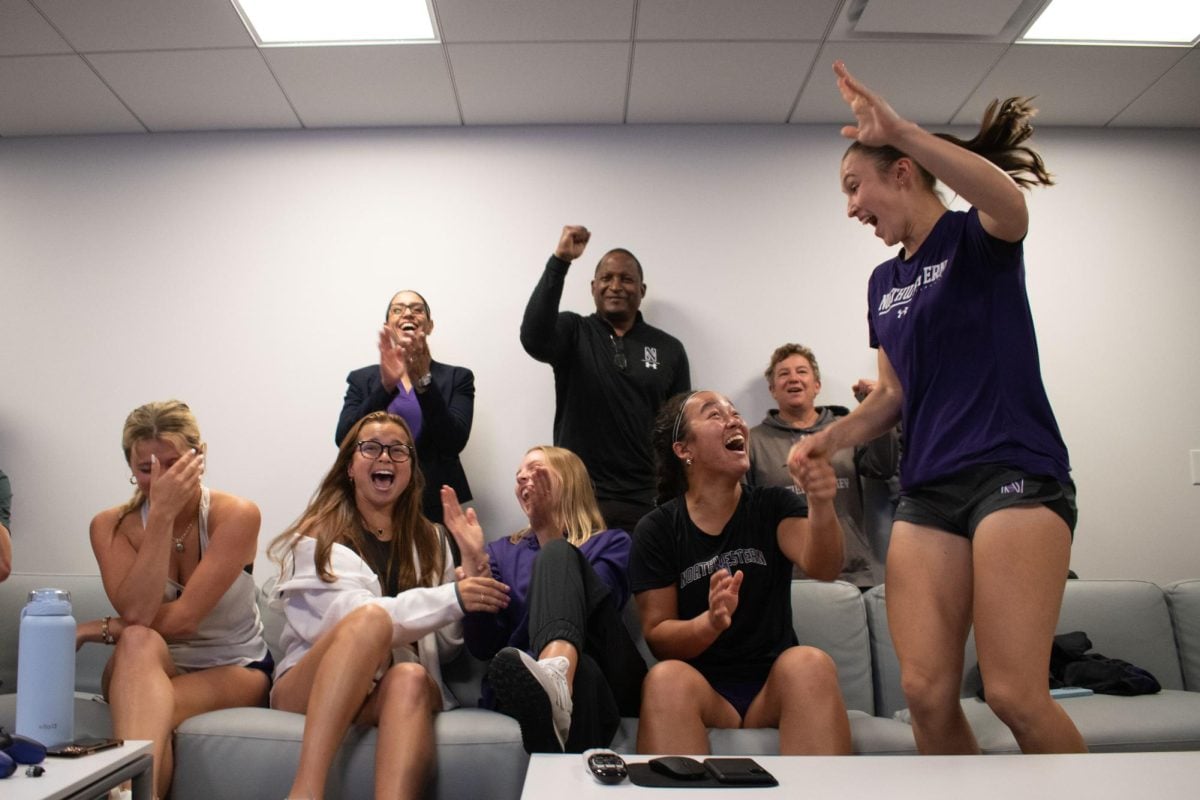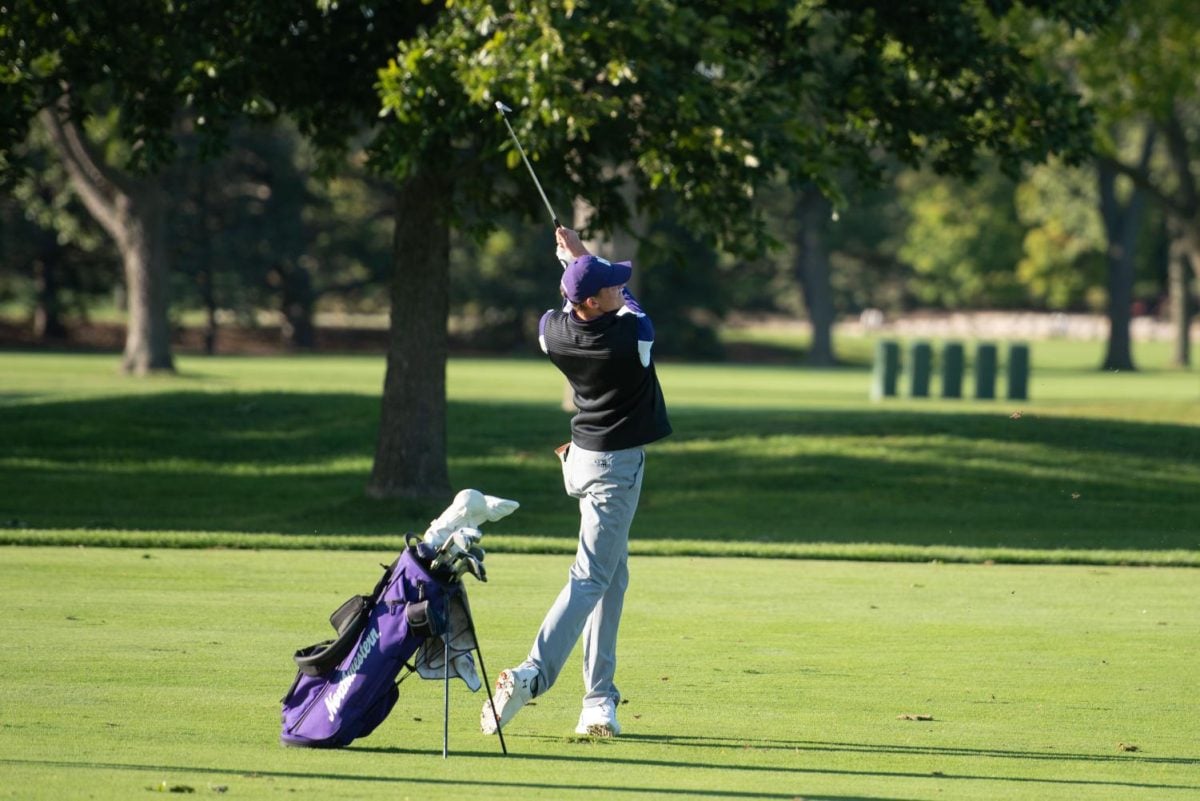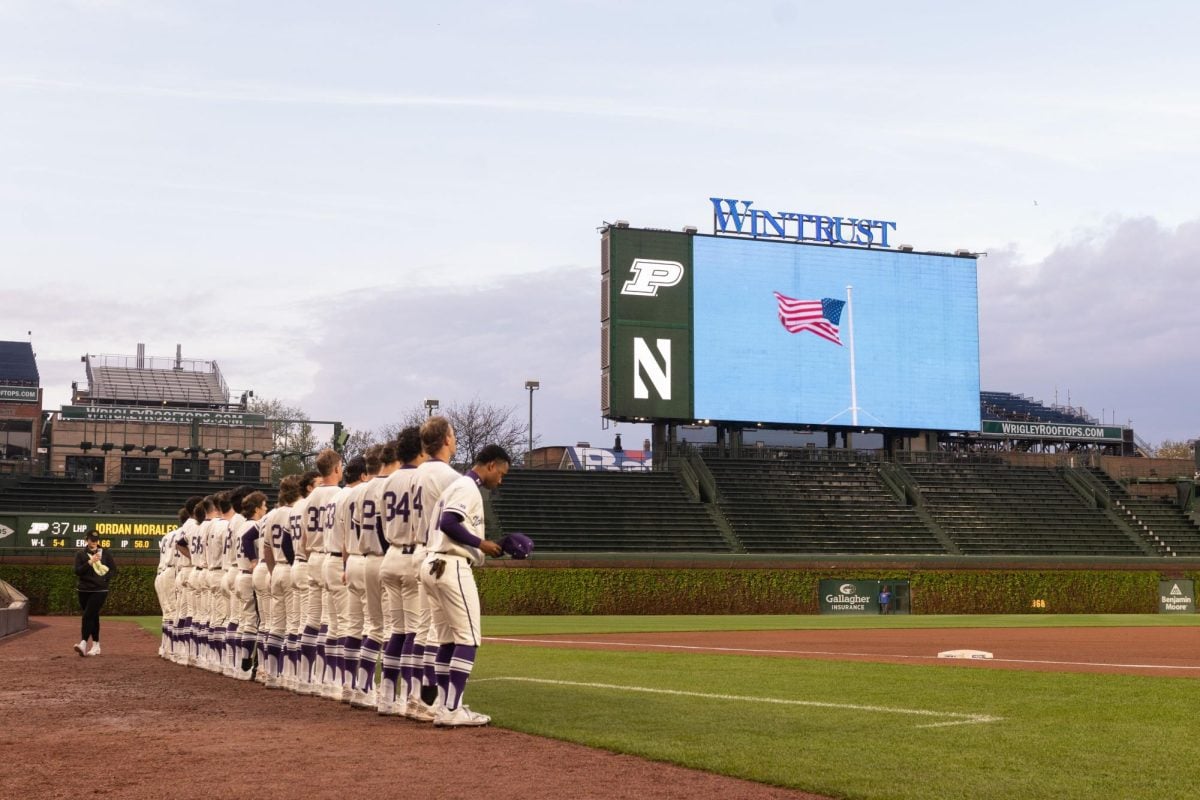It’s 3:42 p.m., and Karalina Collins bounces into Patten Gymnasium, reporting to practice in a gray hoodie and black yoga pants, the yellow light reflecting off her neat auburn ponytail.
She is the last of her teammates to arrive, but flashes a charming grin at her coach, Laurie Schiller.
“You are not matching today, ” Schiller says. He points down to her feet-one sock is purple and the other is pink.
She shrugs.
“Let’s go, Kara,” he barks.
But Collins needs little outside motivation. After practice, when most of her teammates head home, Collins heads straight for the Henry Crown Sports Pavilion and Aquatics Center. Most days she works out for an extra hour.
And she does it with only one hand.
“I was just born and I didn’t have a hand,” the 19-year-old from Houston said. “I am constantly reminded of it when I look in the mirror, but it’s never really occurred to me that I only have one hand.”
Due to a birth defect, the bones and muscles in Collins’s right hand never fully developed. Where that hand would be, there is what Kara and her teammates refer to affectionately as a “stump.”
Sometimes, she will draw a face on her stump with markers just to make everyone laugh, said senior Nicole Tilley, Collins’ fencing partner of two years, giggling a bit.
“I guess when I first met her, I kind of noticed it, but it’s just so unimportant,” Tilley said. “She never lost anything. She was just born that way.”
Tilley and Collins both fence on the epée team. Their matches have the fewest regulations; fencers may touch the opponent anywhere on the body at any time.
All a fencer really needs is one working hand, Associate Head Coach Ed Kaihatsu said. The athletes use one hand to hold the weapon and tuck the other behind their back.
“Her disability doesn’t get in the way,” he said. “The only drawback is getting dressed. But for fencing itself, it is completely unnecessary to have a back hand.”
Tilley said weight training is the only other area in which her teammate is sometimes challenged.
“Sometimes certain activities where you would grab the bench with both hands can’t be done,” she said, “so she does a lot of resistance work instead.”
Collins said she picked up fencing six years ago when looking for a sport that would identify her as a well-rounded student.
Prior to picking up the epée, Collins was a volleyball player. She said she has always been physical and has always taken care of her body.
“If I don’t get enough exercise, I’ll just feel useless,” she said.
Collins said she tried the sport first in sixth grade and excelled. She picked it up permanently during her freshman year of high school, later moving on to more vigorous training.
Schiller said he remembers meeting Collins for the first time at a junior-level tournament. She was fencing at a higher level than most students her age. He said her mother had forced her to introduce herself.
Over the next few tournaments of Collins’ high school career, Schiller kept an eye on her.
“I like to watch not only how talented they are, but what potential they have,” he said. “And I care about the person they are.”
Schiller said Collins has a tremendous amount of talent, but also contributes positively to the team dynamic.
“She’s also a little wild girl,” he said jokingly, before hollering some directions at her from across the gymnasium. “We’re trying to beat that out of her.”
Schiller said he doesn’t coach Collins differently than his two-handed fencers, but he does focus on balance with her.
Though Collins does not have a right hand, she is naturally right-handed. When her brain sends the signals to her right hand, Collins’s brain must convert the message and send them to the other side of her body.
Collins said this “can be difficult sometimes.” Everything she does, she does with her non-dominant hand.
Many of her teammates said they had never talked to Collins about her hand.
“The way she acts, sometimes people are shy about her disability,” Kaihatsu said. “But she’s got a lot of self-confidence.”
Freshman Dina Bazarbayeva, who has known Collins for six years, said she recognized Collin’s bright outlook when they fenced together at the same club in Houston.
“She does what she does, and she doesn’t even care what people think,” she explained. “It’s just her personality. You don’t even look at her hand because you’re just so amazed by the rest of her.”
Collins said she stopped wearing her prosthesis and medical hand in middle school.
“I didn’t want it any more,” she said. “I grew out of it. I became more comfortable with just who I am.”
Her attitude is contagious. Others see Collins the way she sees herself.
“I don’t pay any attention to it,” Schiller said. “It’s just there, it’s just who she is.”
Collins’ sister Cordelia said people tend to see what her older sister has, not what she doesn’t have.
“When people describe Kara today, they talk about (how) beautiful she is or what a great personality she has,” she said. “Her disability is never mentioned. Physically it may stand out, but people never dwell on that fact when remembering (her) as a person.”
Much like her friends and family, Kara Collins said she sometimes forgets she’s a little different from other fencers.
“Even when I look at myself in pictures,” she said, “I’m like, ‘Oh my God. I only have one hand.'”

